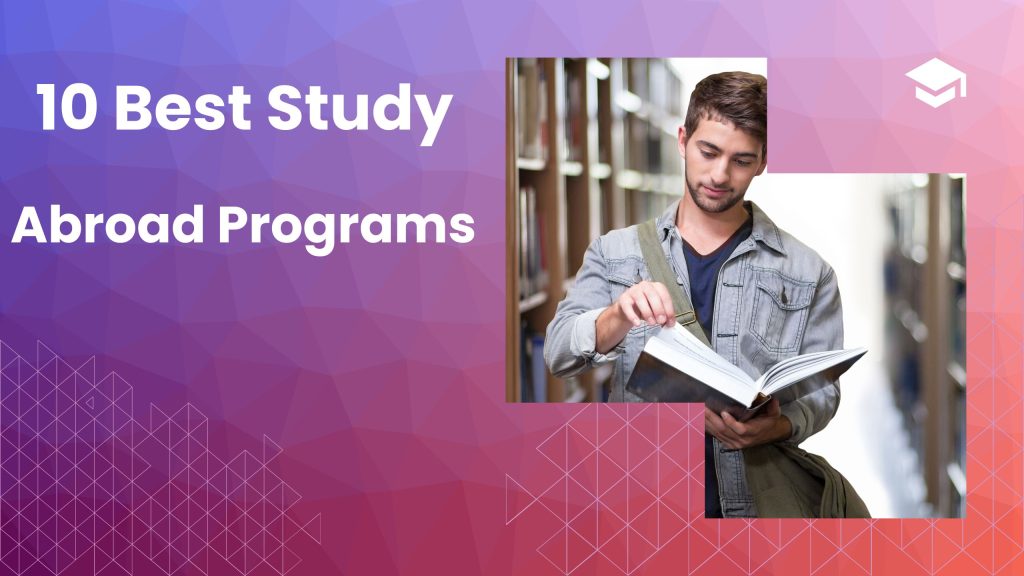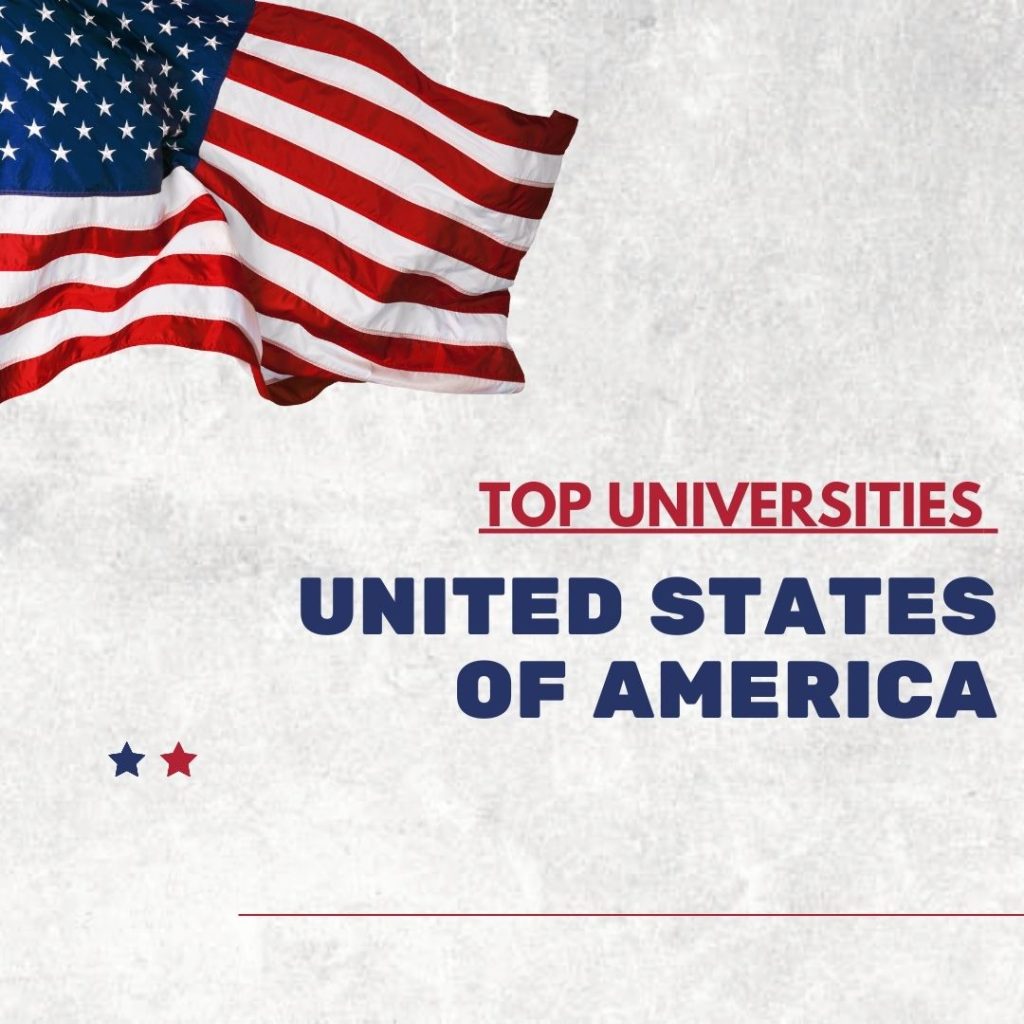Imagine waking up to the sound of church bells in Rome, grabbing coffee at a local café in Singapore, or discussing environmental policy with classmates while overlooking New Zealand’s breathtaking landscapes. In 2025, study abroad opportunities aren’t just about changing your classroom location—they’re about transforming your entire educational experience and future career trajectory.
Whether you’re an undergraduate dreaming of a semester in Europe or a graduate student seeking specialized research opportunities, the landscape of international education is more exciting and accessible than ever before. I’ve researched hundreds of programs to bring you this curated list of the absolute best options available for the coming year.
Let’s explore the programs that are setting new standards for global education and discover which one might be your perfect match for an unforgettable academic adventure abroad.
Why Study Abroad in 2025 Is a Game-Changer for Your Future
In our increasingly connected world, employers aren’t just looking for strong academic credentials—they’re seeking candidates with global perspectives, adaptability, and cross-cultural communication skills.
Global Competencies for the Modern Workforce
International experience has moved from being a “nice-to-have” resume booster to an essential qualification in many industries. According to recent employment studies, graduates with substantial international experience are hired at rates up to 25% higher than their peers without such experience.
What makes study abroad 2025 particularly valuable is the intentional focus on developing specific global competencies. The best programs now integrate skills like cross-cultural negotiation, global systems thinking, and multilingual collaboration directly into their curriculum.
Think of it this way: while your peers are reading about global business practices in a classroom, you could be actively participating in them through internships with international organizations or collaborative projects with local entrepreneurs in your host country.
Personal Growth Beyond the Classroom
Beyond professional advantages, studying abroad creates a profound impact on personal development. Living in another culture forces you to develop resilience, problem-solving abilities, and self-awareness that simply can’t be replicated in familiar surroundings.
As one recent study abroad participant put it: “I learned more about myself in four months abroad than in three years at my home university. Navigating daily life in a different language and cultural context challenged me to grow in ways I never anticipated.”
Top European Study Abroad Destinations
Europe continues to be a premier destination for international education, but the most innovative programs are moving beyond traditional tourist cities to offer deeper cultural immersion and specialized academic experiences.
The Renaissance Scholar Program: Italy
This groundbreaking program in Florence has reimagined the traditional study abroad experience in Italy. Rather than simply offering art history courses with museum visits, the Renaissance Scholar Program creates an interdisciplinary exploration of innovation—connecting Renaissance thinking to contemporary challenges.
Students in this program divide their time between specialized seminars, apprenticeships with local artisans and innovators, and collaborative projects tackling modern challenges using Renaissance-inspired approaches. Housing is arranged in historic districts with Italian families, ensuring language immersion and cultural integration.
What makes this program stand out is its selective application process and its impressive network of industry partnerships, creating authentic pathways for students to develop professional connections while studying abroad.
Nordic Innovation Exchange: Sweden and Finland
For students interested in sustainability, design thinking, and progressive social policies, the Nordic Innovation Exchange offers an unparalleled opportunity to study across two of the world’s most innovative countries.
Program Structure and Unique Benefits
This dual-country program splits time between Stockholm and Helsinki, with specialized tracks available in:
- Sustainable Urban Development
- Social Welfare Policy and Implementation
- Arctic Studies and Climate Resilience
- Educational Innovation and Policy
The program incorporates practical experience through “innovation challenges” sponsored by local governments and corporations, where international student teams develop and present solutions to real-world problems.
Scholarship Opportunities for Nordic Studies
What places this program among the top study abroad options is its exceptional financial support. Through partnerships with Nordic businesses and government initiatives, the exchange offers substantial scholarships covering up to 75% of expenses for qualified students, making it one of the most accessible premium international experiences available.
Premier Asian Study Experiences
Asia offers some of the best countries to study for those seeking to understand the economic and cultural powerhouses shaping our global future.
Tech Future Initiative: Singapore
Singapore’s position as a global technology hub makes it the perfect location for this forward-thinking program that combines technical education with cultural immersion. Hosted by a consortium of Singapore’s top universities, the Tech Future Initiative offers specialized tracks in:
- Artificial Intelligence and Machine Learning
- Sustainable Urban Technology
- Fintech and Digital Banking
- Biomedical Innovation
What distinguishes this program is its integration of academic study with industry placement. Students spend mornings in advanced seminars and afternoons embedded with Singaporean tech companies or research labs, gaining practical experience in one of the world’s most dynamic tech ecosystems.
Cultural Immersion Studies: Japan
This innovative program in Kyoto offers a different approach to studying in Asia, focusing on deep cultural understanding rather than purely professional skills.
With specialized courses in traditional arts, contemporary Japanese society, language, and Japan’s role in global affairs, students develop nuanced insights into both historic and modern Japan. The program includes homestays with Japanese families, apprenticeships with traditional craftspeople, and collaborative projects with local university students.
For those seeking meaningful cross-cultural understanding rather than just academic tourism, this program offers one of the most authentic immersion experiences available in East Asia.
Groundbreaking Programs in Oceania
Australia and New Zealand have evolved beyond their reputation as English-speaking destinations with familiar cultures to offer truly distinctive educational experiences.
Environmental Leadership Academy: Australia
Based in Queensland with field locations throughout Australia’s diverse ecosystems, this program represents the gold standard for undergraduate study abroad focused on environmental science.
Students rotate through modules in:
- Great Barrier Reef Marine Conservation
- Drought Management and Water Security
- Indigenous Land Management Practices
- Wildlife Conservation and Biodiversity Protection
The program’s strength lies in its field-based learning model, with approximately 70% of instruction taking place outside traditional classrooms. Students work alongside leading researchers and indigenous knowledge keepers, developing both scientific expertise and cultural understanding of environmental challenges.
Indigenous Knowledge Exchange: New Zealand
This groundbreaking program centers indigenous Māori knowledge systems and approaches to education, offering a profound alternative to Western academic models.
Based primarily in the North Island, students engage with Māori communities, participate in traditional practices, and explore indigenous approaches to fields like environmental management, community development, and cultural preservation. The program challenges students to reconsider Western academic assumptions while developing deeper appreciation for indigenous perspectives.
What makes this program exceptional is its authentic partnership with Māori educational institutions, ensuring that indigenous communities benefit from international education rather than being treated as objects of study.
Emerging Study Abroad Destinations in Latin America
Latin America is increasingly recognized for offering some of the best study programs for students seeking innovative approaches to sustainable development, community engagement, and healthcare.
Sustainable Development Institute: Costa Rica
Costa Rica’s global leadership in sustainable development makes it the perfect laboratory for this immersive program exploring the intersection of environmental protection, economic development, and social equity.
Students divide their time between classroom learning, field research, and community engagement projects in both urban and rural contexts. The program includes extensive travel throughout Costa Rica’s diverse regions, comparing different approaches to sustainability challenges.
A highlight of this program is its “Solutions Incubator,” where international students collaborate with local communities to design and implement sustainable development projects with real-world impact.
Healthcare Innovation Program: Colombia
For pre-med, nursing, and public health students, Colombia offers a uniquely valuable study experience examining how middle-income countries can develop innovative, efficient healthcare systems.
Based in Medellín—a city known for urban innovation—the program examines Colombia’s healthcare system, which achieves remarkable outcomes despite limited resources. Students observe multiple healthcare settings, from urban hospitals to rural clinics, while studying policy, economics, and public health approaches.
What distinguishes this program is its parallel examination of both traditional and cutting-edge approaches to healthcare delivery, offering valuable perspectives for students from countries with more resource-intensive systems.
Affordable Study Abroad Options Without Sacrificing Quality
International education doesn’t have to drain your savings. These strategically designed programs offer exceptional value through partnerships, scholarships, and thoughtful program design.
Value-Based Programs in Eastern Europe
Countries like Poland, Hungary, and the Czech Republic offer some of the most affordable study abroad opportunities without compromising academic quality. In particular, programs in cities like Kraków, Budapest, and Prague have developed innovative models combining:
- Rigorous academics at historic universities
- Cultural immersion through community engagement
- Professional development through regional business partnerships
- Affordable housing through university residence partnerships
These programs typically cost 40-60% less than equivalent experiences in Western Europe while offering comparable or superior academic quality and cultural experiences.
Fully-Funded Opportunities in Global South Countries
Several emerging programs in countries like Ghana, Malaysia, and Ecuador have developed comprehensive scholarship models specifically designed to increase global student diversity.
These programs recognize that traditional study abroad demographics skew toward privileged students from wealthy countries. To counter this trend, they’ve created innovative funding models including:
- Full scholarships for students from underrepresented countries and backgrounds
- Mixed cohort models where students from high-income countries subsidize those from lower-income regions
- Corporate sponsorship programs aligned with regional development goals
These experiences not only provide study abroad scholarships but often deliver more authentic cultural immersion than traditional destinations overrun with international students.
Short-Term and Summer Study Abroad Programs for 2025
Not everyone can commit to a full semester or year abroad. These intensive short-term options deliver meaningful international experience within compressed timeframes.
Intensive Language Immersion Experiences
For maximum language acquisition in minimal time, several programs have perfected the intensive immersion model. The most effective summer study abroad language programs combine:
- Morning language instruction in small groups
- Afternoon cultural activities and excursions
- Evening homestays with local families
- Language pledges prohibiting English use
- Community service projects requiring target language communication
Research shows that these immersive 6-8 week programs can advance language proficiency by the equivalent of an entire year of traditional classroom instruction, making them extremely valuable for students with limited time.
Field-Specific Summer Research Opportunities
For graduate study abroad experiences, specialized summer research programs offer concentrated professional development within focused timeframes. Particularly strong options exist in:
- Archaeological field schools in Jordan, Peru, and Greece
- Tropical ecology research in Costa Rica and Malaysia
- Urban planning studios in evolving cities like Medellín and Kigali
- Public health research during Ghana’s community health initiatives
These short-term study abroad opportunities typically run 4-10 weeks and offer graduate-level research experience while developing international professional networks within your field.
Application Strategies for Competitive Programs
The most rewarding international programs often have competitive application processes. Here’s how to position yourself effectively.
Timeline for 2025 Applications
For the best study programs abroad in 2025, begin your preparation according to this timeline:
- 12-15 months before departure: Research programs and funding options
- 10-12 months before: Prepare initial applications for both programs and scholarships
- 8-10 months before: Complete major scholarship applications
- 6-8 months before: Finalize program applications and secure faculty recommendations
- 4-6 months before: Begin visa application process
- 3-4 months before: Arrange housing and complete pre-departure requirements
Starting early allows you to pursue the most competitive scholarship opportunities, which often have earlier deadlines than the programs themselves.
Crafting a Standout Personal Statement
The difference between acceptance and rejection often comes down to your personal statement. The most successful applicants:
- Connect the specific program to concrete academic and career goals
- Demonstrate prior interest in the host country or subject area
- Show awareness of potential challenges and growth opportunities
- Articulate how they’ll contribute to the program, not just what they’ll gain
- Express genuine cultural curiosity rather than tourist motivations
Remember that admissions committees are looking for students who will fully engage with the host culture and serve as positive representatives of their home institution.
Conclusion: Making Your International Education Dreams a Reality
The landscape of international education in 2025 offers unprecedented opportunities for meaningful cross-cultural learning, professional development, and personal growth. Whether you’re drawn to the technological innovation of Singapore, the environmental leadership of Australia, or the cultural richness of Italy, there’s a program that aligns with your academic interests and career aspirations.
The key to a successful study abroad experience lies in thoughtful preparation—researching programs that offer authentic engagement rather than academic tourism, securing appropriate funding through scholarships and careful planning, and approaching the experience with genuine openness to cultural difference and personal transformation.
As you consider the programs highlighted in this guide, remember that the most valuable study abroad experiences often challenge your assumptions, push you beyond your comfort zone, and connect you with perspectives you couldn’t encounter at home. The best program for you is one that balances your academic needs with opportunities for genuine cultural immersion and personal growth.
FAQs About Study Abroad Programs in 2025
1. How has COVID-19 permanently changed study abroad programs for 2025?
The pandemic catalyzed several positive innovations that have become standard features in top programs. These include more comprehensive health insurance coverage, flexible cancellation policies, enhanced remote learning components that complement in-person experiences, and improved emergency response protocols. Many programs now also incorporate “resilience training” to help students navigate unexpected challenges. Rather than returning to pre-pandemic norms, the best programs have integrated these improvements while maintaining their commitment to authentic cultural immersion.
2. What financial aid options exist specifically for first-generation college students wanting to study abroad?
First-generation students have access to several specialized funding sources in 2025. The Global First-Gen Initiative offers grants specifically for first-generation students studying abroad, while the Opportunity Fellows Program provides comprehensive funding for first-gen students from lower-income backgrounds. Additionally, many universities have established dedicated scholarship funds for first-generation students seeking international experience. The key is applying early—ideally 10-12 months before your planned departure—as these specialized funds often have earlier deadlines than general scholarships.
3. How do employers actually view study abroad experiences on resumes in 2025?
Recent employer surveys reveal that the value of study abroad experiences depends largely on how students frame them. Simply listing “Study Abroad: Paris” offers minimal impact. However, articulating specific skills developed (such as cross-cultural communication, language proficiency, or project management in international contexts) significantly enhances employment prospects. Particularly valuable are experiences that include applied projects, research, or internships related to your field. Employers consistently rank international experience involving collaborative work with diverse teams among the most valuable qualifications for management-track positions.
4. Which study abroad programs best accommodate students with disabilities?
Several programs have emerged as leaders in disability inclusion. The Accessible Global Education Initiative in Dublin offers comprehensive support for students with both visible and invisible disabilities, while Japan’s Inclusive Exchange Program has pioneered accommodations for neurodiverse students. The Netherlands continues to lead in physical accessibility for programs in Amsterdam and Utrecht. When researching programs, look for those with dedicated accessibility coordinators, pre-established relationships with local disability service providers, and testimonials from previous students with similar accommodation needs.
5. Is it possible to participate in multiple short-term programs instead of one semester-long program?
Absolutely! “Mosaic programs” have become increasingly popular, allowing students to create customized international experiences through multiple short-term programs. Some universities now offer formal “Global Pathways” curricula that intentionally combine short-term experiences in different regions to develop comparative perspectives. The key to making this approach successful is creating a coherent narrative connecting these experiences—perhaps exploring a single issue (like urban sustainability) across different cultural contexts or developing progressive expertise in a particular region through repeated shorter visits focusing on different aspects of the culture.


